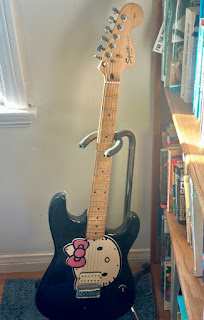 We have rules in our house:
We have rules in our house:
1. Clean up your own messes.
2. Tell the truth.
3. Brush your teeth twice a day.
4. Don't be late for school.
5. Take care of your brother; he's the only one you've got.
~House Rules, Jodi Picoult
********************
As I sat down at the computer to compose this book review, I got a bit nervous. What, really, could I say about the book I just finished reading,
House Rules, published in 2010? I'm not a book reviewer for The NY Times (I wonder how the literati at The Times view book bloggers?). How will I convey my experience with the book, as well as its basic premise, with as few spoilers as possible? It's a lot to contend with, and sometimes I feel lazy, or not quite up to the task. What makes it even more difficult, in the case of a novel by
Jodi Picoult, is that her well-researched works are quite long; this adds to the pressure. How forceful or thoughtful can I be in just a few paragraphs? Will I be able to do the book any amount of justice?
********************
Slowly, over the course of several weeks, chapter by chapter, I read
House Rules, which is written from the perspectives of five main characters in the book: Emma, Jacob, and Theo Hunt, and Oliver Bond and Rich Matson. The format of the book worked well for me; due to time constraints, I'd read a few chapters at a sitting, and looked forward to the next session with the book. Short chapters, written from multiple perspectives (in varying fonts), made them easy to read, a bit at a time, day by day.
House Rules is a novel about the great toll Asperger's syndrome, and others' lack of understanding about it, take on the Hunt family, and subsequently their small community in Vermont. For years, Emma Hunt, Jacob and Theo's mother, has been struggling emotionally, working as an advice writer for the newspaper. Her husband, Henry, left the family many years ago, and started a new family. Emma is very dedicated to helping her son, Jacob, an 18-year-old with Asperger's syndrome. She tries to help Jacob by providing special foods and supplements, and hires a tutor to help him, Jess Oligvy. Life in the Hunt family revolves around Jacob, which takes a toll on his younger brother, Theo, who develops a bad habit of breaking into the homes of others and stealing small items. Although in some ways Jacob is absolutely brilliant, he takes things too literally and lacks the ability to connect and communicate with people, and his autism gets him into serious trouble. Because of his great interest in forensic analysis, along with his inability to communicate with others, Jacob is accused of murdering his attractive tutor, Jess.
Jodi Picoult is a very skillful writer, and her words brought her characters and the story to life. As I read this gripping book, I became anxious about a few things. First and foremost, I hated having to wait to find out the truth about what happened. I wanted to know, I needed to know, sooner rather than later (this was also the case when I read her novel,
The Pact). I did not skip to the ending of the book, though, because one of my few "reading rules" is that I wait and delay my gratification. So, I continued to read--and hope. I wanted the truth to come out more quickly than it did, but I understand why it did not, could not (even though I was in agony).
Secondly, I started to think about Asperger's syndrome. My knowledge about Asperger's was quite limited before I read this book; I only knew that those afflicted were supposed to be highly intelligent. In the book, Jacob has Asperger's syndrome, which means that he is extremely smart, but also affected and afflicted neurologically in various ways, and his ability to communicate with others is severely restricted and limited. I think we live in an age of over diagnoses (including self-diagnoses) of conditions and syndromes, but I couldn't help wondering if I could be somewhat autistic myself; then I started to think about certain family members, and others who might also be (which soon led me to wonder if autism could develop later in life, well beyond the childhood years?). With regard to myself, though, I believe I'm too empathetic, social, and flexible to be autistic. But the book makes you think. If someone has an encyclopedic knowledge about a subject does that make them an "Aspie", or just someone with a profound interest in something? (Questions lead to more questions, and as I type this on the computer I even wonder if computer use could contribute or even create forms of autism?) I think, though, that the difference is a matter of degree and
extremeness, and the book makes a good attempt to distinguish between what's "normal" and what isn't, although I still wondered about the line between the two at times.
House Rules, like other books by this author, impels you to wonder and to question things.

I'm looking forward to starting a new novel by Jodi Picoult for this reading challenge soon,
Sing You Home. If you'd like to join this challenge, feel free to grab the button. Please visit
The Jodi Picoult Project Page I created for more details or to add your review link (if you don't have a blog, but wish to participate, please email me). As always, I welcome your comments, and thank you for reading.













